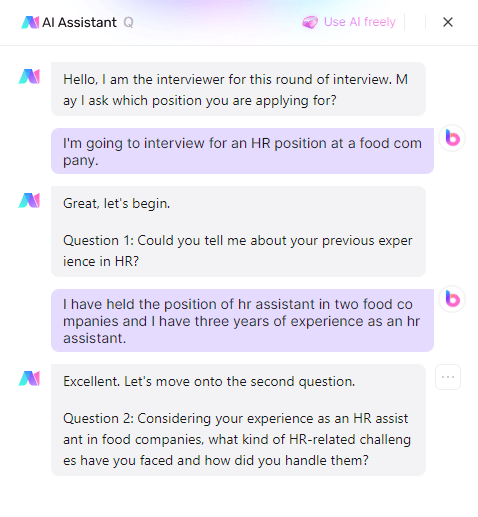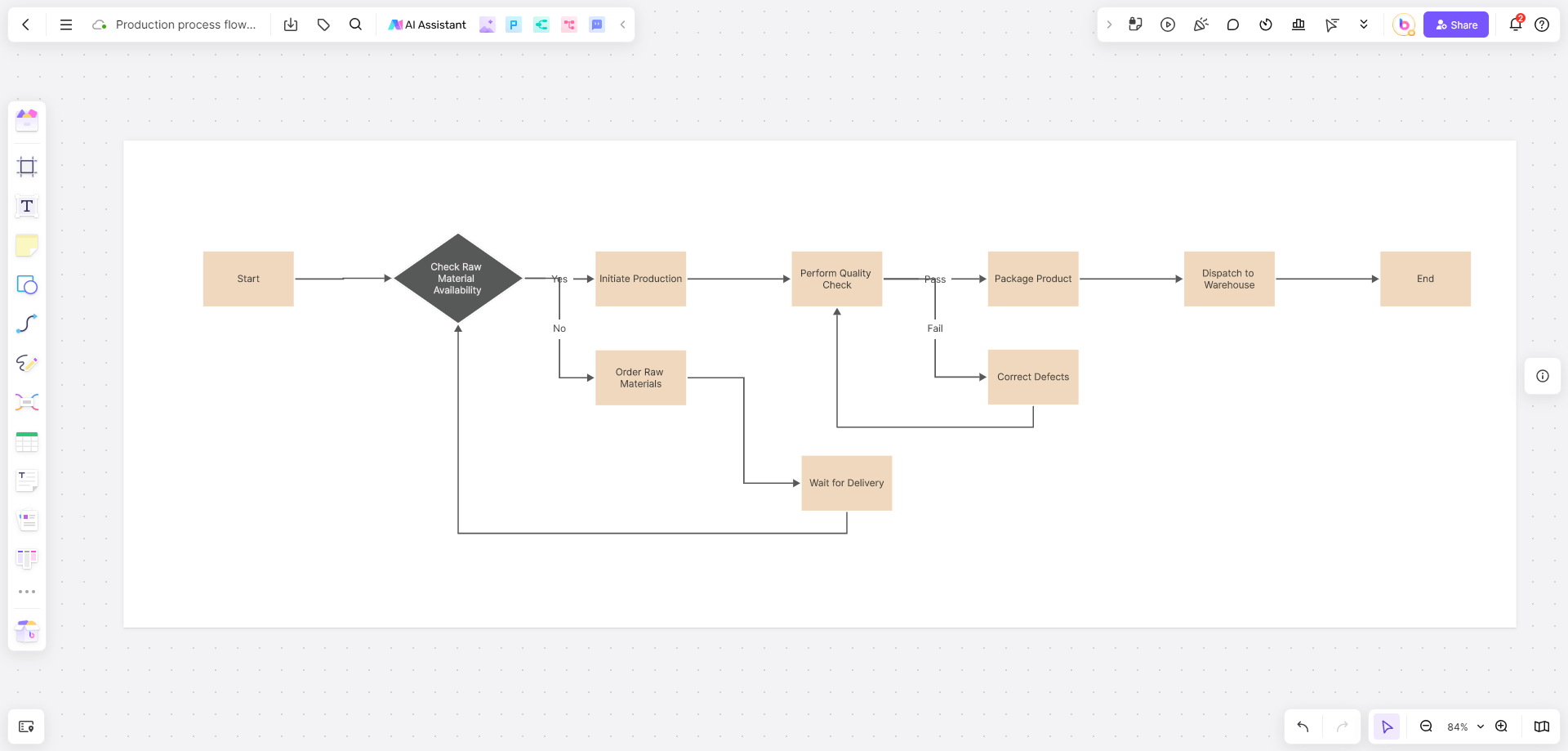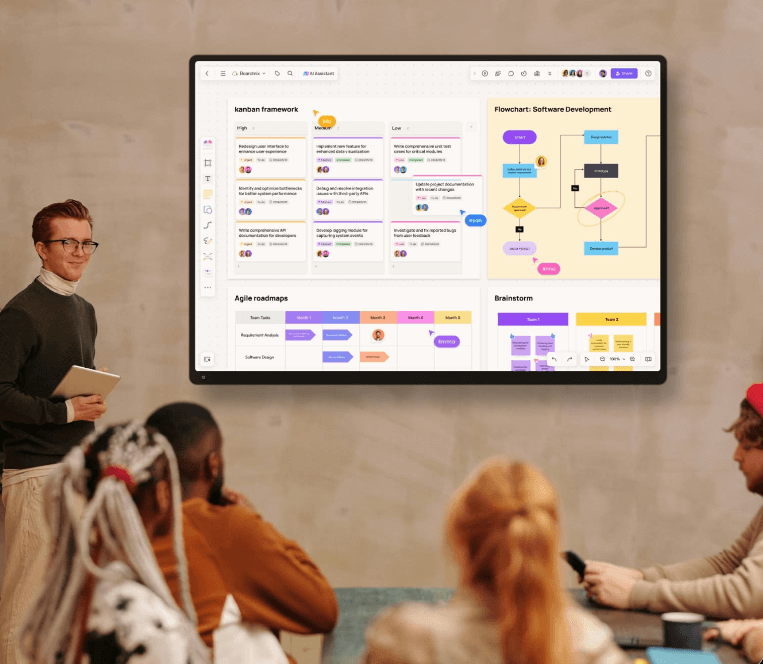The user journey map (customer journey map) is a technique for capturing user experiences that logically illustrates the steps that customers take from the first awareness stage to the last stage of purchase. Brand development requires effective consumer engagement, which is why the user journey map is so crucial. This article will introduce you how to use AI to create user journey map for free!
What is a User Journey Map?
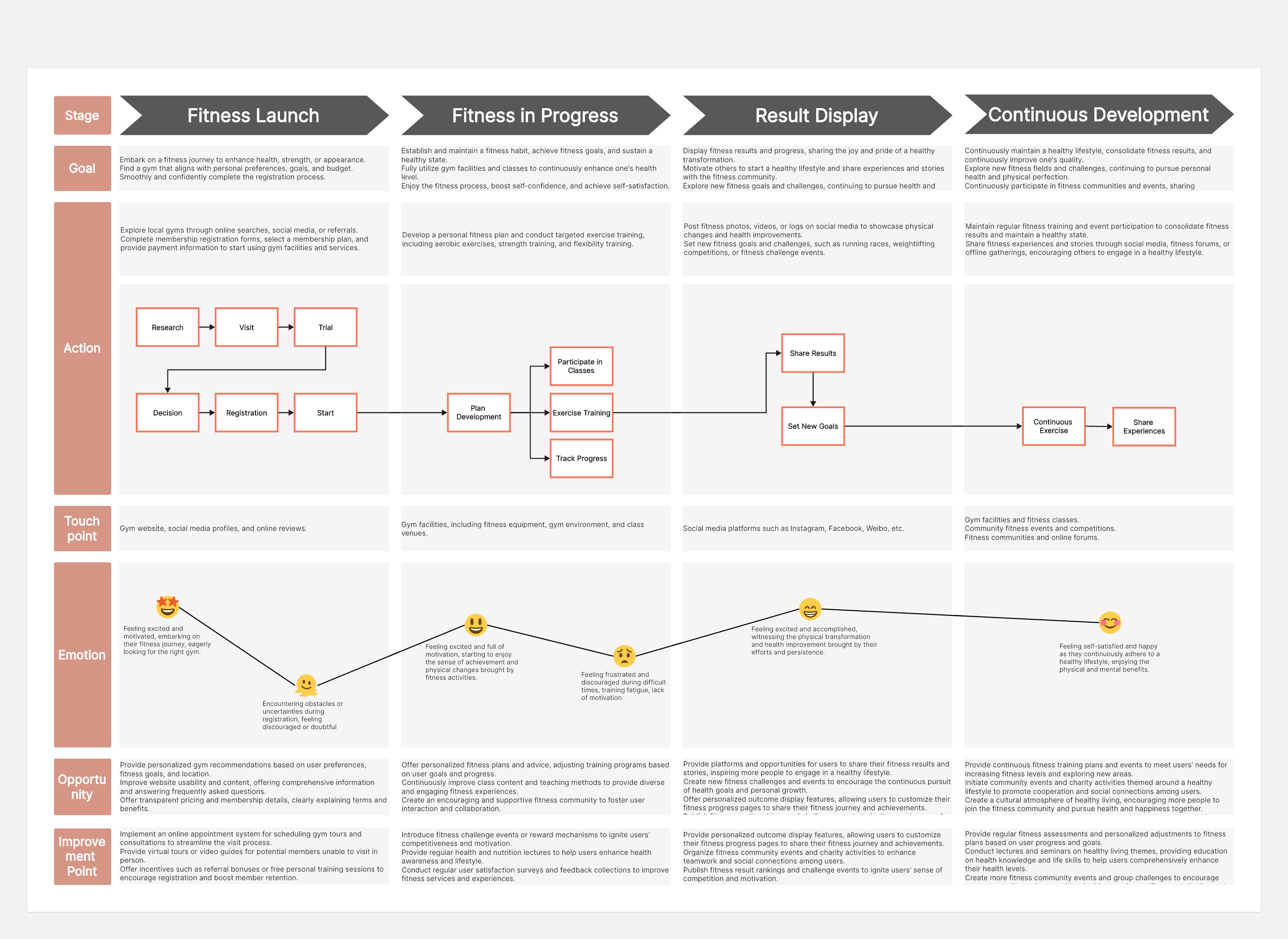
The user journey map shows how consumers interact with goods and services. It highlights the objectives, feelings, and problems of users at each level of contact, from discovery to purchase and even beyond into the future. User journey maps are traditionally used by user experience designers and product teams, with the main purpose of identifying friction points. When users' objectives, preferences, and motives are not satisfied, they may consider giving up on the product. These situations are referred to as friction points. Resolving friction points helps improve user experience and enhance user satisfaction.
How to Use AI to Create User Journey Map with Boardmix
Step 1: Login to Boardmix

Create a free account on Boardmix, an AI-powered online collaboration whiteboard. After logging in, select “AI-Generation Template” or "Start from scratch" to begin your user journey mapping AI.
Step 2: Generate Journey Map Structure with AI
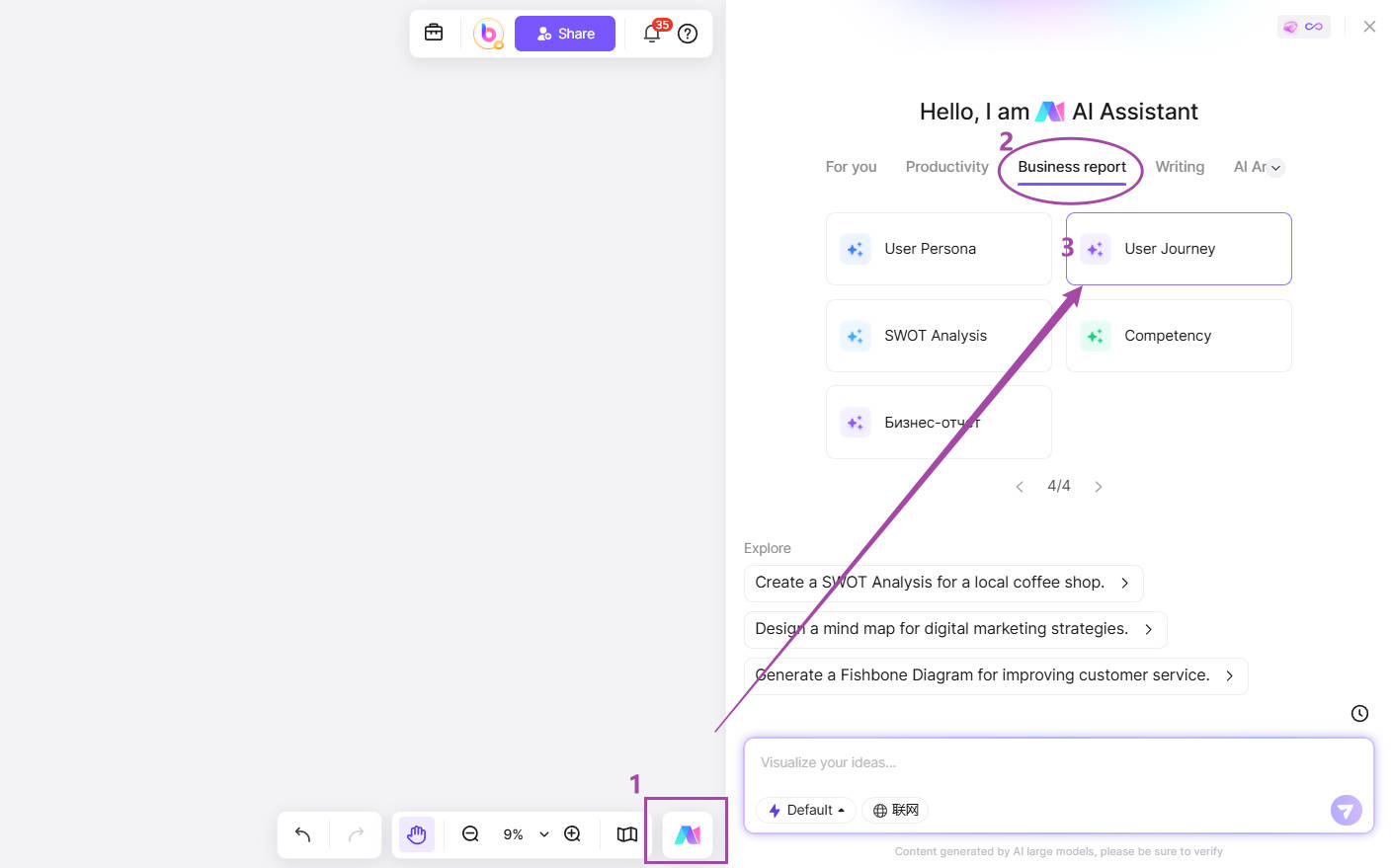
Launch the Boardmix AI assistant in the canvas's lower right corner, select "user journey" under "business report" to supply topic content, and then simply wait for a few seconds while the AI creates the user journey map.
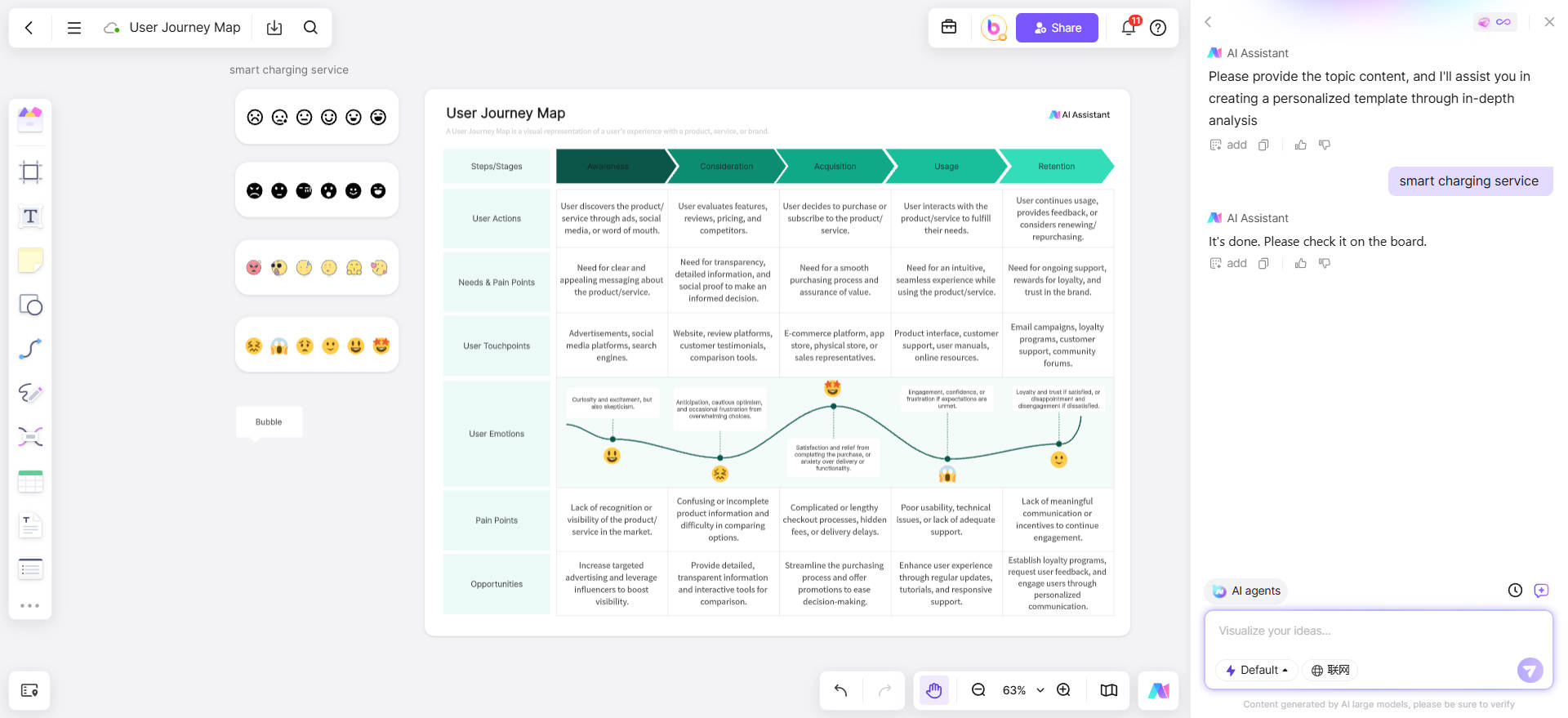
For instance, GreenVolt is a U.S.-based new energy firm that provides intelligent charging options for EVs in public spaces. The product team made the decision to employ user journey maps to pinpoint major issues and areas for improvement in order to streamline the registration and usage process for new users and lower the first-time charge failure rate. So, "Smart charging service" can then be entered into the AI.
Step 3: AI Predict Unexpressed Needs
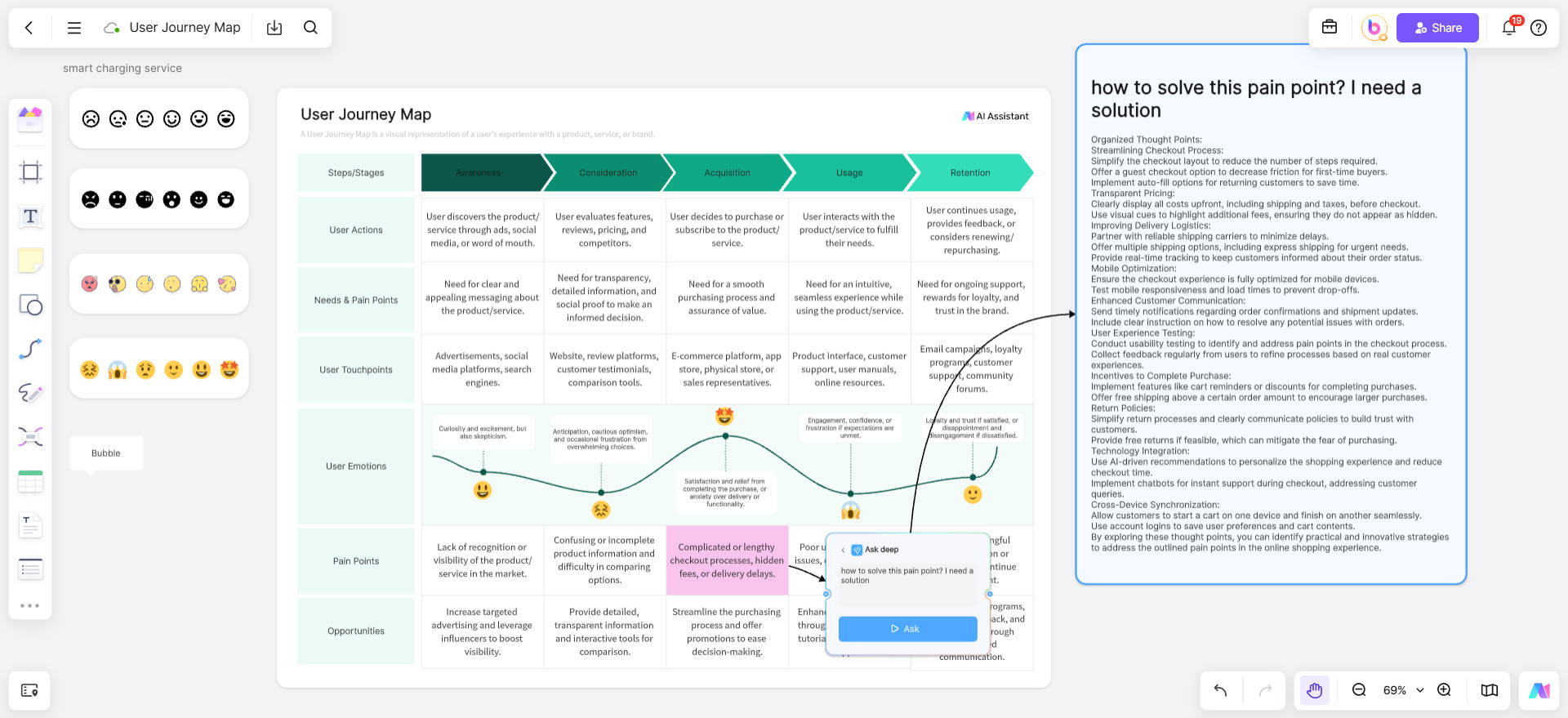
You can use AI to predict unexpressed needs or enrich information. For instance, you can ask AI detailed questions about a particular user pain point if you don't understand it, and AI can suggest remedies on its own: "Simplify the checkout layout to reduce the number of steps required and offer a guest checkout option to decrease friction for first-time buyers."
Step 4: Refine with AI-Generated Insights
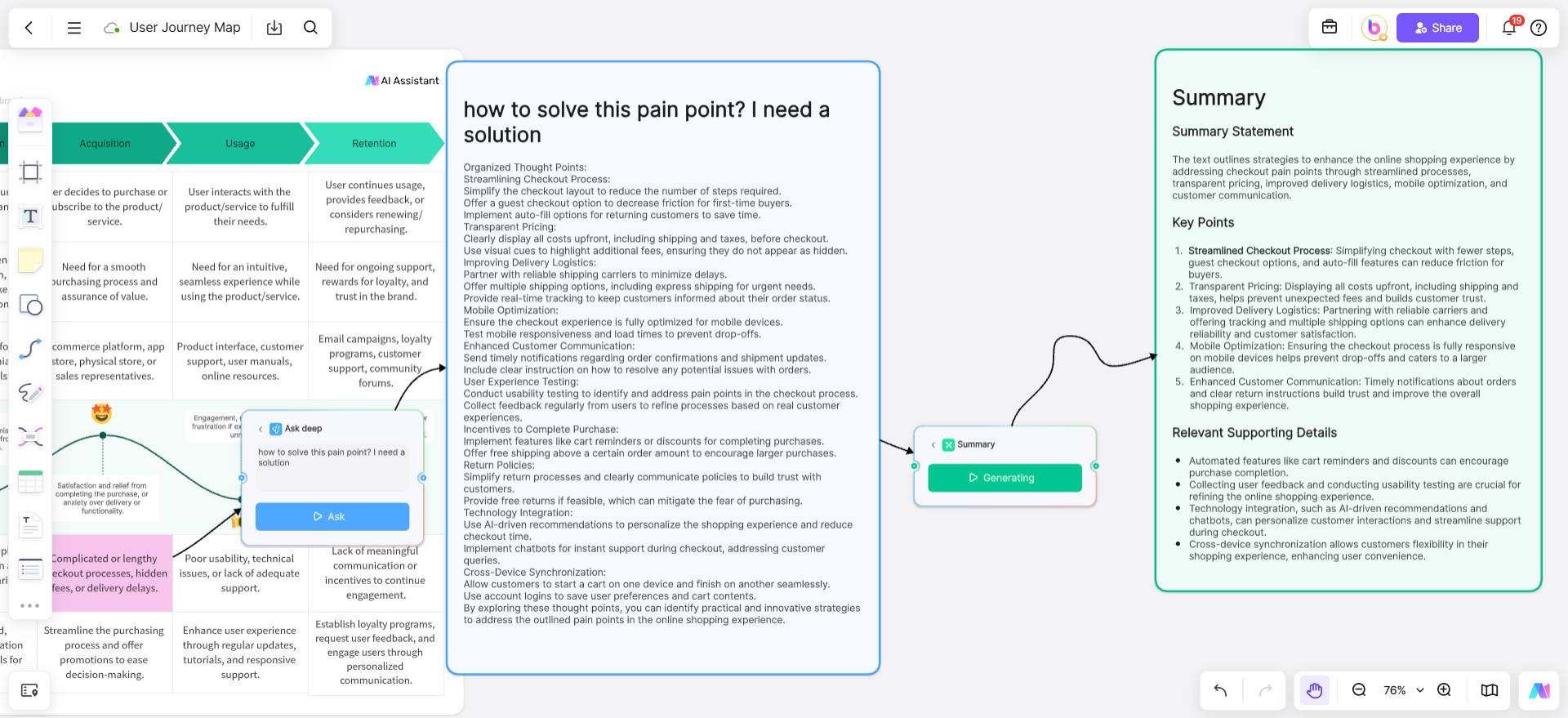
AI can continue to help you summarize the solutions you want, which helps visualize the entire workflow and greatly improves the efficiency of using the user journey map. After organizing the data and plan, invite teammates to give feedback and make real-time adjustments directly on the canvas.
Step 5: Combination of User Journey Map and User Persona
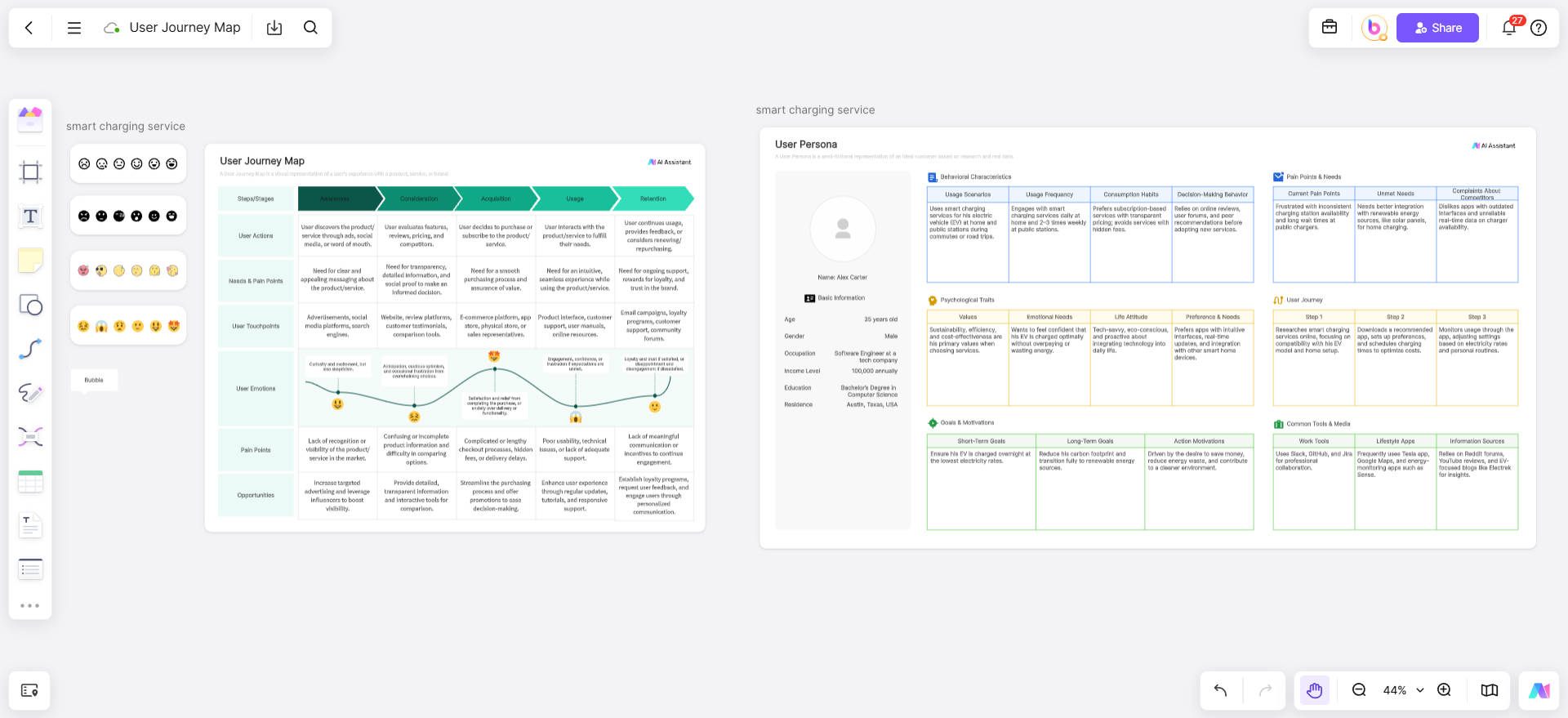
Using user journey maps alone is frequently not enough to understand users' actual behavior and make it more three-dimensional. The same steps can be followed in the "business report," where you can locate the "user persona." Based on your input, the AI will create user profile information. For instance, goals and incentives, routines, frequently used goods, etc. These two charts can be readily compared thanks to Boardmix's unlimited canvas.
Step 6: Export and Implement
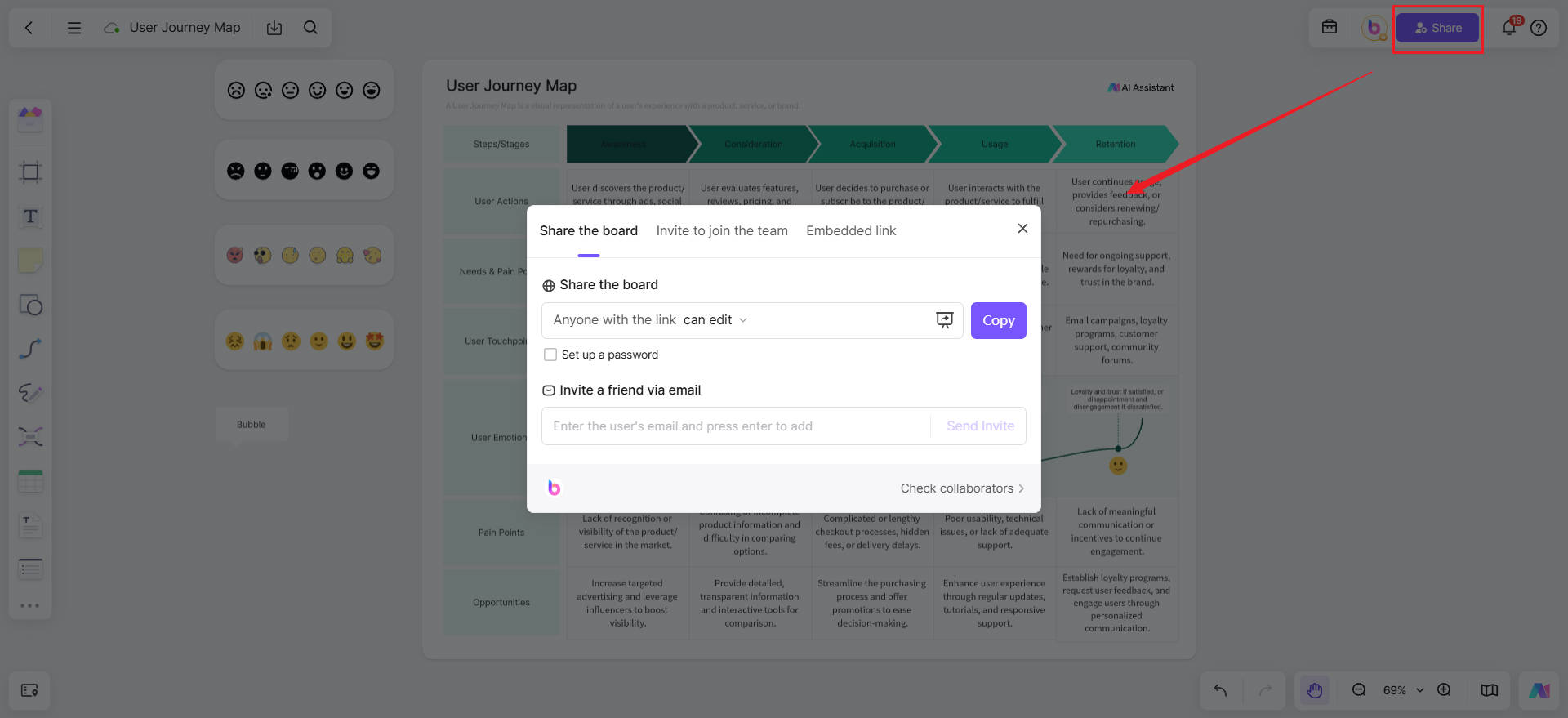
Export your journey map as a document or share it with development, marketing, and customer support teams to ensure everyone aligns with the user perspective.
Case Study: User Journey Mapping AI in UX
The main purpose of creating user journey maps for brands is to delight customers and reduce customer effort, specifically by improving the Customer Effort Score (CES). However, because they are unable to confirm the veracity and correctness of the data, UX designers frequently encounter major difficulties while gathering user data. As a result, the data may be misused, and the user journey map may eventually be reduced to a formal instrument. The case that follows will demonstrate the issues that AI can assist in resolving.
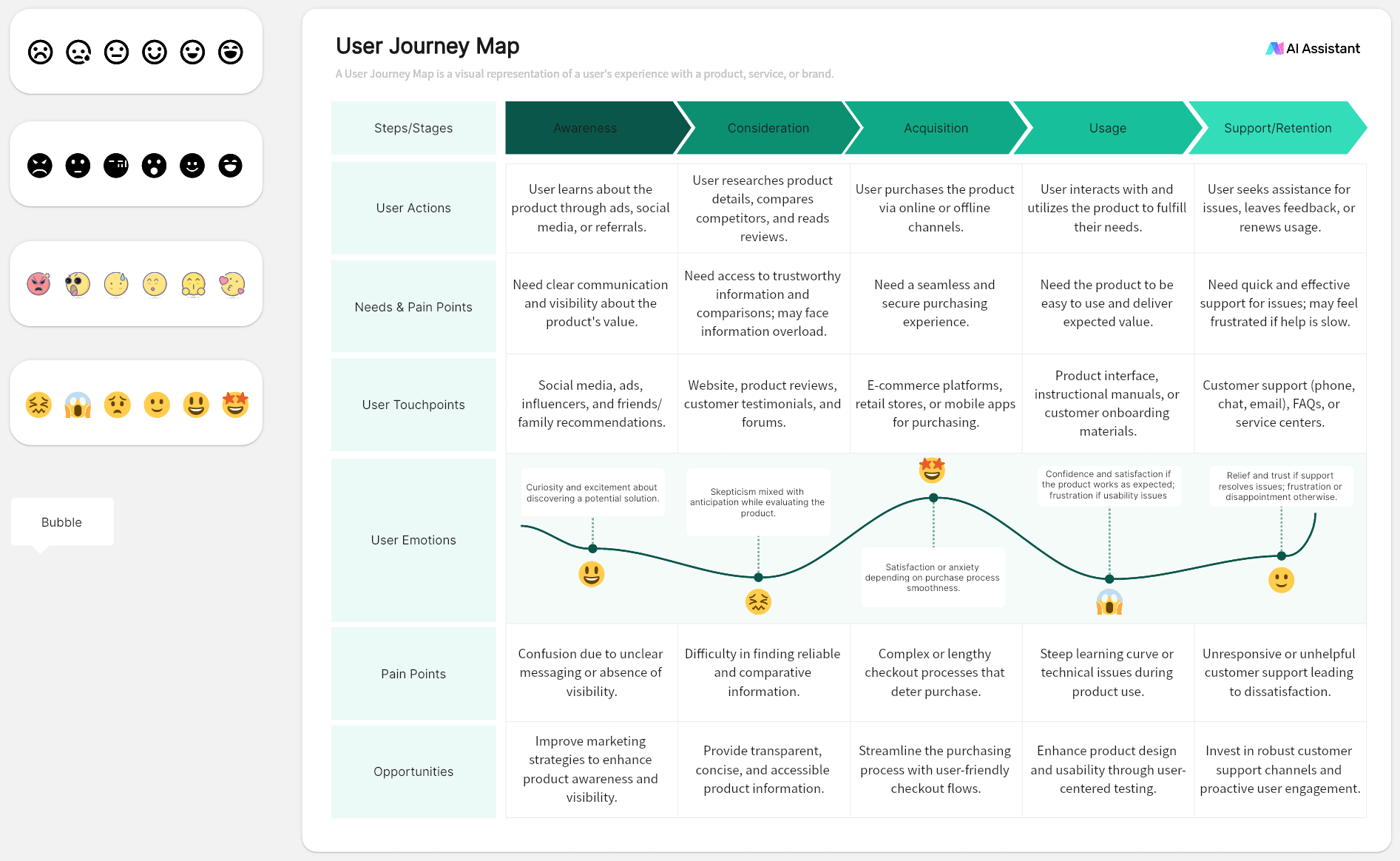
For a UX designer of a digital banking app, using AI to create user journey map can solve the following 2 problems:
- The absence of organization in the gathered user feedback makes it challenging to examine the entire experience.
- Inconsistent team members' perceptions of "which experience pain points are most critical," which result in frequent changes to the product's direction.
UX designers no longer rely solely on retrospective interviews or subjective surveys; instead, they can use AI to automatically track user interactions at digital touchpoints, identify newly emerging friction points, and receive intelligent improvement suggestions. In digital banking applications, AI can analyze login behaviors, transaction patterns, or customer service inquiries to uncover hidden pain points—such as users struggling with two-factor authentication or being confused by transaction fees. This then allows UX designers to consider alternative processes or suggest layout adjustments to enhance usability and reduce churn rates.
By removing formalism from user journey maps and concentrating on raising customer engagement ratings, AI not only helps solve data problems but also saves time and effort. The quality and depth of the data used to create user journey maps is crucial to their efficacy, which is one way AI is changing conventional approaches.
Why Use Boardmix AI to Create User Journey Map?
✅ Quicker time to value realization: Boardmix's AI enables tasks that previously took days or even weeks to finish to be finished in a matter of minutes.
✅ A wide range of AI features: Boardmix helps teams work more effectively and attractively by offering brainstorming and presentation tools in addition to user journey map templates.
✅ Remove uncertainty: Based on user scenarios, Boardmix AI suggests solutions, pain locations, and emotional states.
✅ Real-time team collaboration: Work together in a common workspace with the product, design, and marketing teams.
Conclusion
The customer journey is the path people follow to obtain your product or service, which can foster empathy and significantly enhance the overall user experience. With the help of Boardmix, you can use AI to create user journey map in just a few minutes. This means less time spent on construction, allowing you more time to visualize multiple user journey maps, quickly compare their experiences, and delve deeper into users by combining user personas. Start exploring Boardmix to create AI user journey map now!



